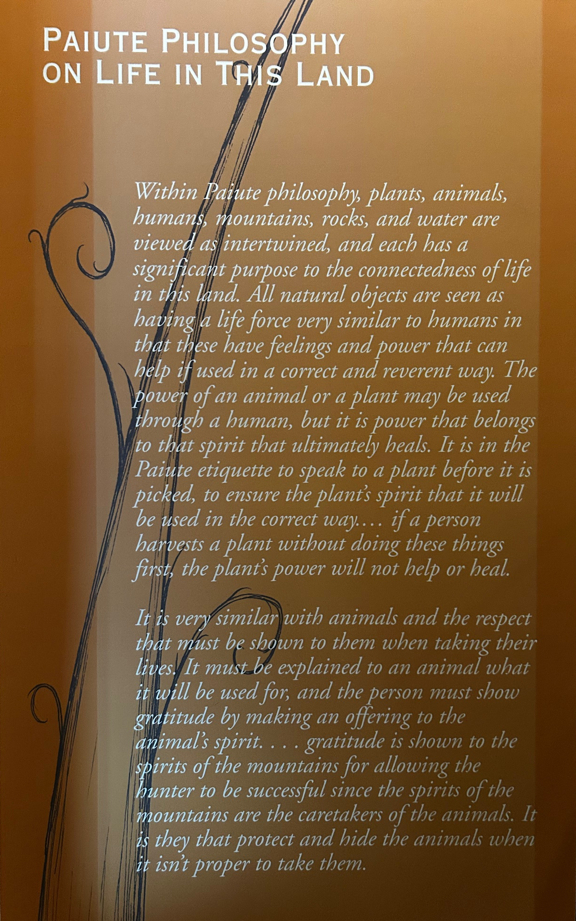When we have learned enough truth about any two disciplines, we will surely find that they are inextricably connected. The following is the story of how Physics and Jurisprudence are so connected.
The earth was the center of the universe for a long time. When we finally broke through that error, we got a perspective that eventually put a man on the moon. Likewise, the unspoken but widely accepted restriction of rights to humans, or at least to sentient creatures, has kept us from the more universal truth, viz., all things have rights.
Every natural object has natural rights.
This discovery came as a result of thinking that there ought to be a basis for natural rights within natural law. Then Einstein’s admonition to “Look deep into nature, and then you will understand everything better.” seemed the perfect methodology. It took a while to find natural rights in nature, but eventually, I had the “yes, of course” moment.
We have overlooked this insight because natural rights are profoundly ubiquitous, and like a fish doesn’t know he is wet, we have missed what was in plain sight everywhere we looked.
Now, I have been working on this theory of natural rights for several years, trying in my spare time to plumb its depths and to comprehend its implications. The following paragraphs are the major bullet points that I have discovered so far.
What is a Right Anyway?
The idea of “rights” is clearly one of authority. Even toddlers demonstrate this sense when you violate their authority and take away their toy. Then there’s that feeling we all experience and youths verbalize it with “You aren’t the boss of me.” The idea of “a right” to do or have something is an abstract one, but natural rights are always connected intimately to something physical or mental.
It is insightful to take the perspective of an outsider watching a rights-holder. What we see is someone who has a warrant, an authorization, an empowerment, or an authority to act for, or to be an agent for himself. In other words, having the power (capability) to act is also having the power (authority) to act. The two characteristics cannot be separated. Let me simplify this.
Ontologically: the nature of nature is such that natural things have agency within to do what they naturally do.
We know that objects have natural rights because we see them exerting that authority over themselves and other objects.
It troubles me that these explications complicate something so profoundly simple. Try to stop thinking words and just ponder a moment on these visions where you will see authority and capability simultaneously:
the sun holding the Earth in orbit, (Is the sun exercising authority over the Earth? Does it have the right to do that?)
a beaver cutting down a tree,
a child solving a puzzle.
When we view the universe through this quiet lens, we have a spiritual experience. The universe becomes a living thing with beauty, majesty, and power.
Let’s Pin This Down Tight
This perspective on natural rights has such profound implications for our governance, jurisprudence, and morality that it needs to be solidly established, grounded so thoroughly as to leave no excuse for its dismissal. We need to do a little mental exercise here.
Visualize the planets rotating around the sun and answer these questions while keeping that moving visualization going in your mind. Are the planets under the influence of the sun? Is the sun controlling the planets? Does the sun have the capability to control them? Does it have the authority to control them?
That last question changes the context and moves us from strictly physical phenomena to a question of authority.
Change of scene. Now you are in a city park with a very large open area devoid of everything except a level, mowed grass field. There is a distinct line across there where the sod has been lifted and put back for a utility of some sort. It appears to be a perfectly straight line. You have an exercise app on your smartphone that traces your walking path on a map, and just for fun, you decide to see if you can write your name in cursive on that map using the line in the grass as a guide.
You write a few letters when a stranger notices your convoluted path and asks, “What in the world are you doing?” You explain. To your surprise, he immediately protests and demands that you quit writing your name. “You have no right to write your name that way on a public park that has it’s own name,” he cries. You are flummoxed in disbelief.
Here, a physical activity comes under a question of authority. The activity and the issue are inalienable because they are inextricably connected. This is a replication in principle of the question about the sun’s authority to control the planets. This same inextricable connection exists with the sun if we choose to ascribe natural rights to natural objects. This is a choice. It is the choice that previous natural rights theorists have not made because they didn’t recognize the possibility of such a choice, and that, in turn was because they assumed rights were only held by humans, or at least by the highest forms of life.
We will excuse them because the opportunity was inconceivable to them, but nonetheless, that was an arbitrary choice.
It is quite impossible to draw a line anywhere in the continuous spectrum of existing operators in the universe and to logically say that entities to the left of the line have no rights and entities to the right have them.
That was an arbitrary choice. The most natural, the most logical perception of natural rights must include all operators.
This is Important
Western civilization rotates on an axis of natural rights. This becomes apparent if one removes the idea from our culture and watches what happens. Freedom and justice disappear and chaos rules. Chaos rules in pockets of our civilization where rights are deliberately violated to create uncertainty and fear as a means to control the vulnerable human spirit.
An improved understanding of natural rights can provide a stronger, irrefutable claim to the sanctity of natural rights and stop bad actors who ride fear into power. This new vision of natural rights appears as a purely secular definition and is therefore incapable of dismissal based on religious belief. Meanwhile, it is not a negation of Divine Providence but an explanation of how the Creator endowed natural rights.
If you prefer to see natural rights as an endowment of our Creator, well and good. Glory be to God, so do I! But the means of the endowments are the same: the power to do. The endowment was done with the words “… have dominion over the fish of the sea, and over the fowl of the air, and over every living thing that moveth upon the earth.” Genesis 1:28. He endowed me with a brain to write, and you with the power to choose whether you agree with me, and the sun with the power to hold both of us close in a warm embrace. It is all the same.
Natural rights are profoundly ubiquitous. You cannot look at anything in the universe without witnessing the operations of operators, each one exercising its powers and rights simultaneously.
The Terse, Universal Definition of Natural Rights
Natural Rights: the authorities of operators to operate.
The Long Version
“Natural Rights” is the label we abstract from and then apply to the authority or agency an operator possesses to exercise its capabilities. For example, I have the power to speak, and my authority to speak is inherent and intrinsic within that power. When I speak, I exercise my ability and my right simultaneously because that right is inalienable. It cannot be separated from my power to speak. If you thwart my ability, you also destroy my right. You either have a speaker with the natural right to speak, or you have neither.
The right to life, or more broadly, the right to exist, creates a space filled by the right to operate.
The Explication
Because a right is an abstract idea, it must have a real antecedent, or else it has no standing. Its antecedent is the authority exhibited by an entity when it exercises power. That statement may seem circular, but only because Temporal Rights are profoundly inherent and intrinsic. One can, with semantic grace, denote a right as being the “authority” aspect of the corresponding capability.
For example, the capability to own property inherently includes the right to own property: without that right, ownership is meaningless. In this particular example there is a clear connection to law and jurisprudence.
All theories of natural rights draw the abstract idea of rights out of the nature of things, and one may choose not to draw out this abstraction. It is, after all, a discrete, mental choice to accept the idea of rights.
Truth is an abstract idea drawn out of reality. Both abstractions deliver comprehension of relationships, cause and effect, and other interesting ideas to the human mind. Just as truth is the metadata of reality, Temporal Rights is the metadata of the powers of objects in that same reality. These are useful tools in the work of understanding the world.
The Unification of Authorities
Temporal Rights are inherent, intrinsic, and inalienable in a manner more profound than any traditional theory of natural rights. The distance between temporal rights and the laws of nature and hence also natural law could not be shorter. They are indeed one and the same.
This is how the Creator endowed “unalienable rights”.
This is unsurpassable intrinsically.
This is an irrefutable definition of natural rights.
Why “Temporal Rights”
I use the name “Temporal Rights”, primarily because they are created in the instant of the creation of an operator and are extinguished in the moment of its demise.
The Abstraction We Call Freedom is not an Abstraction
The punishable abuse of rights is the essence of good government, and Temporal Rights clarifies these matters, making them comprehensible, more tangible, and hence more enforceable.
Liberty and justice provide an environment where citizens have confidence in the efficacy of the sacrifices required by progress. Temporal Rights theory did not create this relationship, but it does anchor it directly in natural law. The advantage offered is that once a citizen recognizes its simplicity and power he will be compelled to honor and/or submit to its civilizing effects. The effect is a direct support to the ideals of liberty and free enterprise, not available under previous theories of natural rights.
Freedom describes a state in which operators operate with impunity because their natural rights are directly and intimately tied to their owners which are palpable objects. Under this light, we see individual citizens exercising their rights. Communism and socialism, for example, are based on group think, or the idea that groups have rights. However, a group is an abstraction and abstractions are always at least one step away from their antecedents.
An abstraction cannot possess a Temporal Right.
The Ascendency of Temporal Rights
The natural law that governs the operator and the natural rights that arise therein are in the same domain. There is no need for a theory to connect them. There is no need for logical arguments or for “reason” to be cited for the derivation of these rights or for appeals to related observations of human behaviors and values.
Traditional theories of natural rights claim a connection to natural law. The Temporal Rights paradigm says that natural rights are not merely connected, but an intrinsic characteristic of those laws. There is no claim for natural rights more natural.
The sum and substance of years of natural rights theory reach their climax in Temporal Rights.
Good and Evil
The law of the jungle is played out on the Serengeti and in the ghettos, where untamed, uncivilized creatures consume one another. The law of the jungle is the natural law of this planet. That law says that if an operator can, it has the right to do. The Temporal RIghts paradigm is thus a view of rights as they really are exercised and, therefore, the simplest and most honest view of natural rights.
This demonstrates the need for a principle that will civilize us, and we find that in the simple “all men are created equal [in value]” principle. The morality needed is simply that your rights end where mine begin. Otherwise, I am your slave.
The Temporal Rights paradigm leads to the principle that good is honoring, respecting, and protecting natural rights, and evil is any violation of those rights, whether by law or person. Can you think of an evil that is not such a violation? This morality is powerful because it is simple. And it forms a basis for justice and jurisprudence.
A Paradigm Shift for Jurisprudence
The usual view of crime sets a perpetrator against a victim, but under the light of Temporal RIghts all conlicts are seen as a conflict of rights. This is a paradigmatic shift that balances the process of jurisprudence by simultaneously recognizing the natural rights of both parties. Temporal Rights establishes an objective view rather than a moral supremecy/guilt view of crime. This promises to usher in a higher form of justice that will reduce or eliminate the feeling that justice was incomplete. This often arises when a victim has rights that were ignored during a trial. This new paradigm could lead to a sentence for both the parties by addressing all the rights that were infringed. The victim might need to change some things too.
Jurisprudence cannot be even-handed while crudely casting conflict in the simplistic framework of perpetrator/victim.
Realizing that natural rights have a natural hierarchy, I have begun a search for a way to place them in their proper order. I have discovered a method that needs much work but seems promising. It is described in Boundaries of the Temporal RIghts Hierarchy. These can be used in jurisprudence as an aid in balancing the rights of the plaintiff and the defendant because they demonstrate types of rights and their relative weights.
Overcoming Nihilism
The “scientific” thinkers have all but conquered our civilization and are hell-bent on returning us to the pagan state the desert religions saved us from. They happily celebrate the death of God with their hedonism and perversions that, for example, are sacrificing children to the god of convenience and to sexual slavery they call freedom. They don’t seem to realize that they are fundamentally claiming to be the center of the moral universe.
The Temporal Rights perspective offers a completely secular origin for the natural rights that they cannot violate without revealing their crass selfishness. Nor can they dismiss it as being based on religion.
The Temporal Rights concept goes even further. If the highest power of man is the ability to choose, then the highest choice must be the choice to love.
The Spiritual Component of Temporal Rights
When the Native American needed and saw a buffalo, he saw two things simultaneously: a spiritual creature and a resource of meat, bone, and hide. Many of these people thought it was necessary to explain to the animal what was going to happen and why. Some even thought that unless this kind of respect was afforded to an animal or plant, the power and/or healing/nourishment would not be realized.
Perhaps our pioneer heritage explains how we adopted the “conquering the West” attitude. Civilization washed westward in a great wave where survival was paramount, and the elements of nature were always a challenge. This simplistic animosity separated and characterized us as enemies, facilitating our materialism. We are repulsed at our extortion of eggs from the natural rights of caged hens but have not been able to articulate clearly the reason why. Temporal Rights reveals a unified picture where all things, especially living things, are cousins. It is not “us against them” but “we are all family”: creatures not with opposing characteristics but whose differences are only of scope and degree.
Temporal Rights can lead the way to a more intelligent, more reverent way of life. This change would move us towards a philosophical unity with both Eastern and Native American thought. I found the following in a Native American museum in Arizona.

“Within Paiute philosophy, plants, animals, mountains, rocks, and water are viewed as intertwined, and each has a significant purpose to the connectedness of life in this land. All natural objects are seen as having … power that can help if used in a correct and reverent way.”
The John Templeton Foundation has awarded the sizable 2025 Templeton Prize to the Ecumenical Patriarch Bartholomew “for his pioneering efforts to bridge scientific and spiritual understandings of humanity’s relationship with the natural world.” Sir John Templeton, founder of the prize, had a philanthropic vision to “harness the power of the sciences to explore the deepest questions of the universe and humankind’s place and purpose within it.”
Surely, Temporal Rights would make Sir John a happy man because it finds human morality, justice, reverence, and freedom inextricably rooted in the nature of nature.
An Invitation

Several years ago, I decided to look for natural rights within natural law. It seemed obvious to me that the two had to be intimately connected: that the ontology of natural rights ought to be found in the nature of nature. In fear that any study of existing natural rights theories might prejudice my mind and preclude my hoped-for discovery, I avoided them altogether. I ignored the masters in hopes that I might surpass them.
I began the search based on an experience I had almost a half-century ago. While writing On Human Rights and Government, the second essay of the Bicentennial feature series for The Freeman magazine published by the Foundation for Economic Education (FEE), I wanted to provide a basis for those rights that would be at least palatable to non-believers. I didn’t know a basis that was not some religious or secular version of “endowed by their Creator,” so I apologetically prayed for one.
A concept immediately came to mind showing the hierarchy of rights demonstrated by a beaver cutting down a tree, and a tree splitting a rock. The essence of this was that they had the right to do what they were doing. The property right of the stone was particularly compelling to me because it demonstrated the inalienability of rights so profoundly: you either have a rock with a property right or you have neither. I liked the fact that this was all within the domain of the most fundamental principles of natural law.
While I liked that demonstration of rights, it seemed to me that it just sort of hung out there in logical space. I wanted to see if it could be anchored better or justified by finding a solid connection to the physical universe. But a connection eluded me until one night when I realized that the right and the power are one and the same, that these separate characteristics only appeared when an object was examined through one or the other lens. Their profound intrinsicality had escaped me until then.
It is a new and unprecedented paradigm, and I invite anyone who can find a problem with Temporal Rights to please help me fine-tune (or abandon) the idea. If you happen to be one who disagrees, PLEASE state your reasons in a comment below. It is new and virtually untested – so please.
Freedom is based on the idea of rights. So, if you think Temporal RIghts might be a strength to freedom, help me get the word out.
Jackson Pemberton




